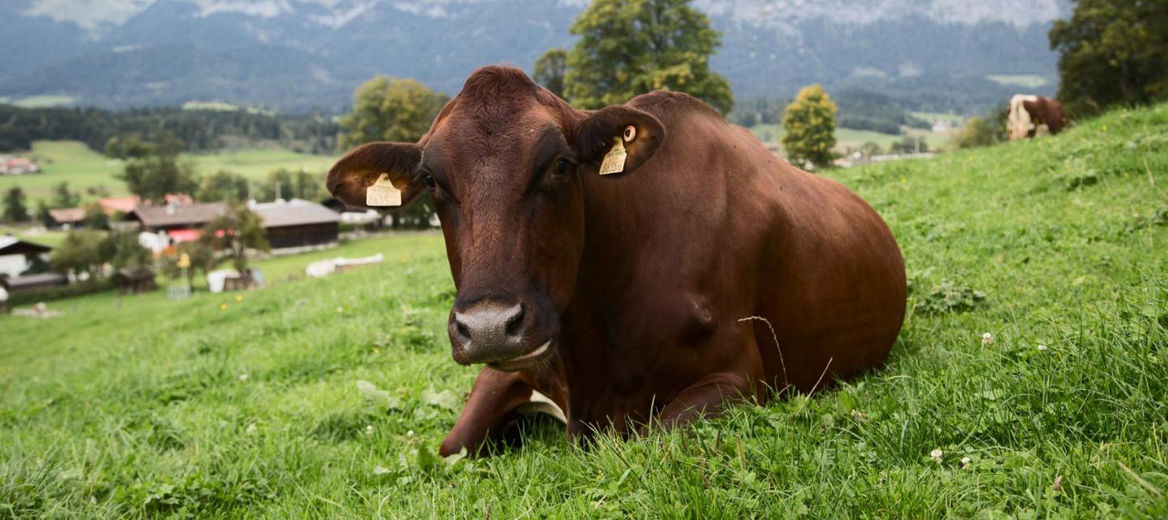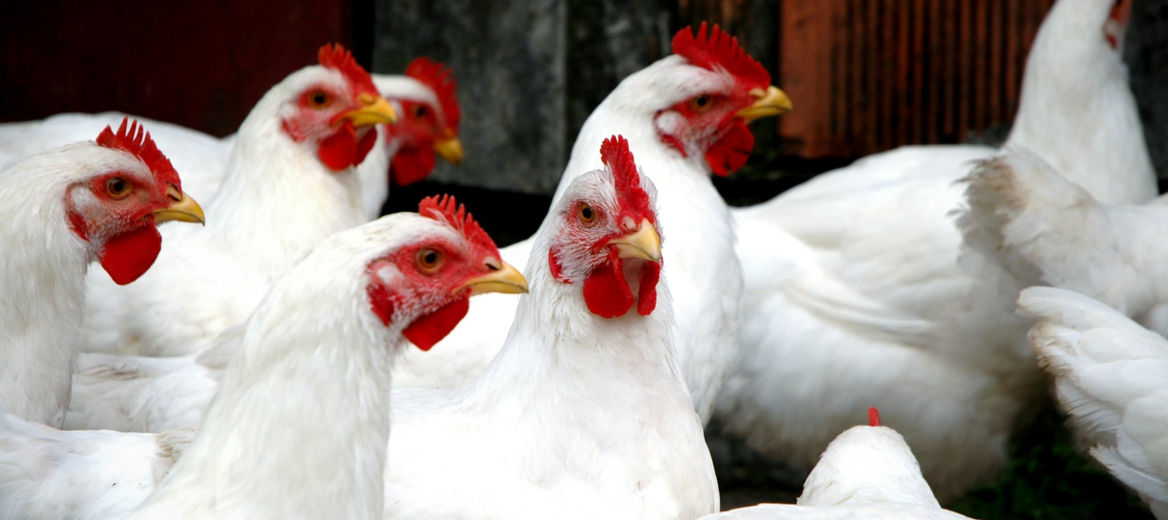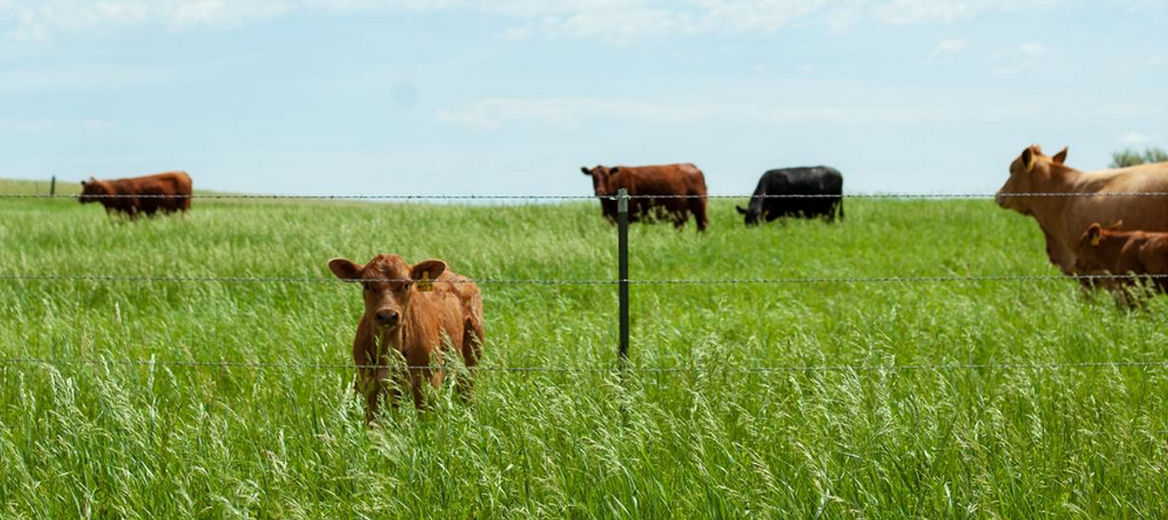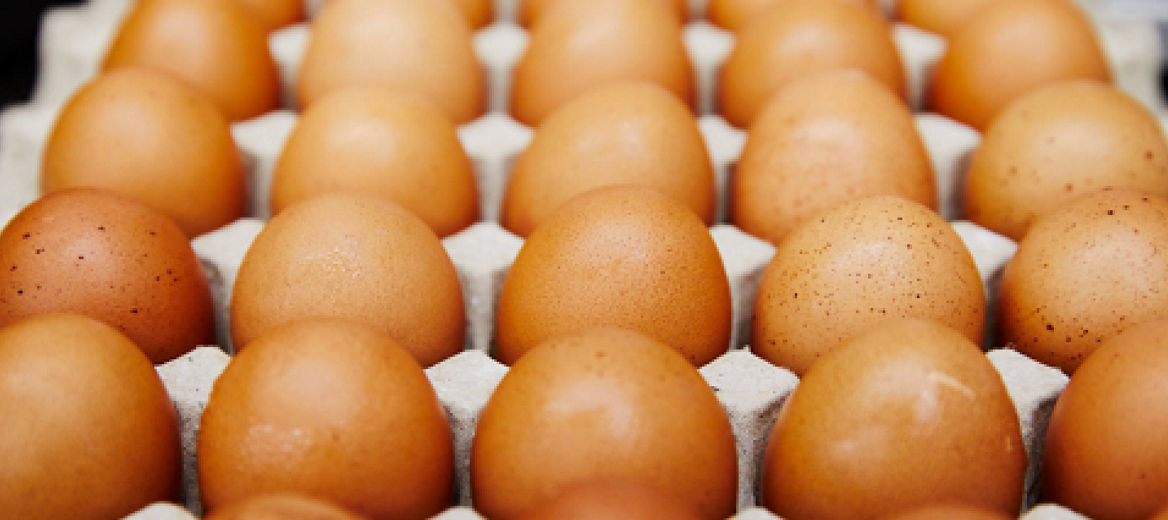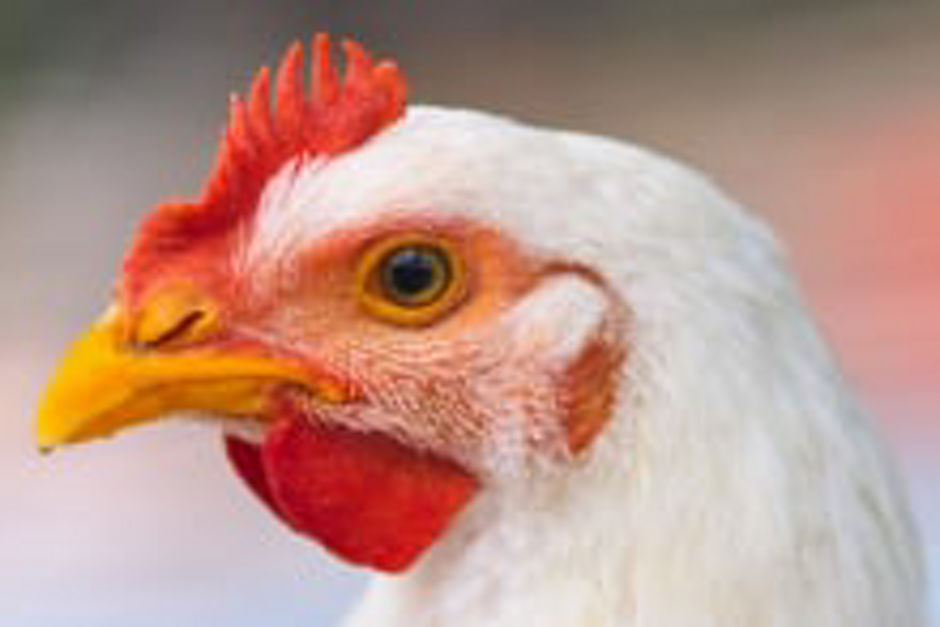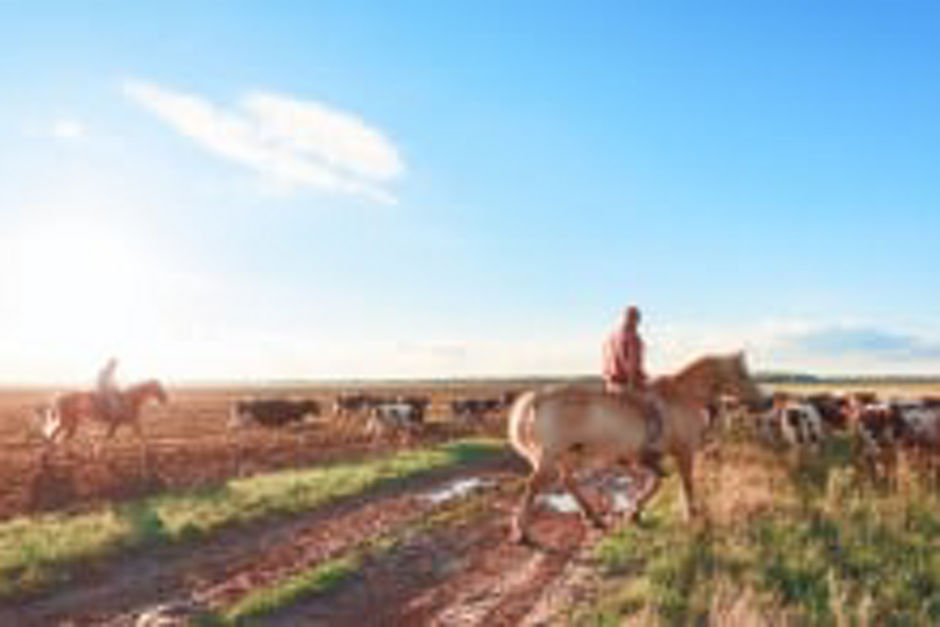Animal Health & Welfare
We continue to make the health and welfare of animals a priority throughout our supply chain.
Serving safe, quality food relies on animals that are properly cared for throughout their lives. At McDonald’s, this includes both animal health and welfare, and responsible antibiotic use.
While individual countries may be impacted by different regulations, legislation and standards, we remain focused on the positive impact we can have by working with suppliers.
Recent Progress
France, Germany, Australia and the U.K. have each achieved a 100% cage-free egg supply chain and the U.S. sources more than 74% cage-free eggs.
More than 61% of our pork purchased in the U.S. comes from suppliers that have phased out the use of gestation stalls for housing confirmed pregnant sows.
We are currently on track to achieve our 2024 Broiler Welfare Commitments across our in-scope markets, which once fully implemented will positively impact more than 70% of McDonald’s global chicken supply.
Also on this page, you can see Our Performance for more detail on our achievements and Footnotes for an explanation of the scope and definition of our commitments.
Our Strategy
Our Approach to Animal Health & Welfare
We believe we have a responsibility to improve the health and welfare of animals in our supply chain and work with our global network of suppliers to actively encourage industry and cross-sector collaboration. To achieve positive impact in this area, we engage recognized subject matter experts and academia to access guidance and challenge the way we think. Taking a whole-system approach that considers everything from housing to humane slaughter, we leverage our global scale in local markets to help drive positive outcomes.
Our Supply Chains at a Glance
- Chicken – McDonald’s sources chicken from suppliers globally who share our values. We focus on ensuring chickens are raised with strong animal health and welfare standards. Read more about how we’re responsibly sourcing chicken.
- Beef and dairy – Our expectations for beef suppliers are clearly outlined in our policies, standards and specifications for raw materials and finished products – which include strict requirements for animal health and welfare. Read more about how we’re responsibly sourcing beef and dairy.
- Pork – We work closely with pork suppliers who are as dedicated as we are to continuously improving animal welfare. Together we are phasing out the use of gestation stalls for housing pregnant sows in the U.S. market. Read more about how we’re responsibly sourcing pork.
- Eggs – Our commitment to sourcing cage-free and free-range eggs in certain markets has helped transform supply chains. We have partnered with our suppliers to help lead the way and meet consumer demand at a massive scale.
McDonald’s has led the way, with a thoughtful and measured approach to switching to cage-free eggs to meet consumer demand at a massive size and scale.
Norm Stocker, Vice President of Eggs & Chicken, Cargill
See Our Performance against our goals for animal health and welfare.
Ensuring Supply Chain Compliance
Our programs and systems make McDonald’s animal health and welfare requirements clear for suppliers. For example, our:
- Global Raw Material Sponsorship Program defines our annual food safety, animal health and welfare, and social workplace accountability requirements for all raw material suppliers of beef, chicken and pork.
- Global Sustainable Sourcing Guide further outlines category-specific requirements, which are also embedded in our product Quality System Specifications.
- Global and market Quality Systems teams are in frequent contact with our suppliers, reviewing their performance to ensure policies are properly implemented and consistently met.
- McDonald’s animal health and welfare standards are defined for each species and verified through recurring independent audits of approved slaughterhouses. Where these audits find non-compliance, we work with the supplier to enhance their practices and implement robust and sustainable corrective action plans.
Standards to Ensure Humane Slaughter of Beef, Chicken and Pork
We believe it is essential that every animal in our supply chain is treated humanely throughout its life.
As a global company, we comply with religious slaughter requirements, including Halal and Kosher, when required by our customers. With the exception of a limited number of markets that do not allow stunning prior to slaughter for religious reasons, all animals within our supply chain are stunned before slaughter. For animals subject to religious slaughter, McDonald’s religious Animal Health and Welfare standards are strictly observed.
Stunning animals to assure insensibility before slaughter is a critical animal welfare requirement. Regardless of stun method, any potential conscious animal observed at the point of slaughter constitutes an automatic audit failure. We immediately remove any supplier that fails to meet our stun effectiveness requirements from our approved supplier list.
Our Performance
For the latest progress and information on our Responsible Antibiotic Use Goals, please visit our Responsible Antibiotic Use page.
U.S. Pork Housing Goal
In the U.S., we’re working with pork suppliers to phase out the use of gestation stalls (small, enclosed pens) for housing pregnant sows by the end of 2024.
Progress
In 2017, we achieved our milestone to source pork for our U.S. business only from suppliers who share our commitment to supporting the phase-out of gestation stalls for housing pregnant sows in our supply chain.
As of the end of 2021, the U.S. pork supply chain is more than 61% of the way toward our target, which we are on track to achieve by the end of 2024. We expect to reach 85–90% of our target by the end of 2022. Although progress and conversion rates have been delayed by the impacts of COVID-19 and the global outbreak of African Swine Fever, resulting in our extending this target by two years, we remain committed to working with our suppliers and agricultural partners to achieve our commitment. Our commitment is guided by the industry- and American Association of Swine Veterinarians (AASV)-endorsed definition for group housing for pregnant sows.
Cage-Free and Free-Range Egg Goal
The U.S. has a goal of sourcing 100% cage-free eggs by the end of 2025.
Progress
As of the end of 2021, the U.S. egg supply chain is at more than 74% cage-free and Canada now sources more than 57% cage-free eggs.
Canada and Arcos Dorados (the largest independent McDonald’s Licensee, with operations in Latin America and the Caribbean) have also set goals of sourcing 100% cage-free eggs by the end of 2025.
In certain markets we’ve achieved a cage-free egg supply chain. France, Germany, Australia and the U.K. have each achieved a 100% cage-free egg supply chain. In 2021, all of the eggs used in our menu and as ingredients in McDonald’s Netherlands products were free-range.
Our commitments to sourcing chickens raised with improved welfare outcomes will impact more than 70% of our global chicken supply1 and we expect that they will be fully implemented by the end of 2024.
Progress
We are on track to achieve all of our 2024 Broiler Welfare Commitments. For details on our latest progress for each of the eight commitments included in this goal, please see our 2022 Broiler Welfare Progress Update (PDF – 100 KB) or read our Focus on Chicken section for more details on this commitment.
Highlights of our progress to date include:
- 100% of our Canadian supply chain and approximately 60% of our U.S. supply chain facilities utilize Controlled Atmospheric Stunning (CAS), widely thought to be the most humane slaughter method; we’re on track to achieve 100% by the end of 2024.
- In partnership with global suppliers and an external third-party facilitator, we are in the process of concluding an extensive, two-year commercial trials initiative to inform our key welfare indicator (KWI) target-setting efforts, and to study the impacts that certain production parameters – such as breed and stocking density – have on welfare, environmental and economic outcomes.
- Members of our Chicken Sustainability Advisory Council (CSAC) – as part of an Enrichments & Lighting Working Group – have defined outcome-based enrichment & lighting guidelines for implementation by our suppliers.
- We recently advanced three broiler welfare-monitoring research projects into Phase 2 of our Sensing, Monitoring, Analysis, Reporting Technology (SMART) Broiler initiative. Throughout this phase of the initiative, McDonald’s will provide researchers with access to funds and facilities that allow them to continue developing technology that objectively and effectively monitors broiler welfare and behavior.
Our Focus Areas
Focus on Beef and Dairy
McDonald’s is a founding member of the Global Roundtable for Sustainable Beef (GRSB) and strongly supports its five core principles, including animal health and welfare. See our Responsible Sourcing page for examples of how we’re applying these core principles across our supply chain. For details of how we’re advocating for responsible antibiotic use in the beef industry, see our Responsible Antibiotic Use page.
Industry Collaboration With Our Dairy Suppliers
We have aligned with the National Dairy FARM (Farmers Assuring Responsible Management) Program in the U.S. Since 2018, all U.S. dairy suppliers have tracked the percentage of farms in their supply chains that have completed the FARM second-party assessment. In 2021, McDonald’s USA achieved its 2020 commitment for all U.S. dairy product suppliers to be able to demonstrate that 100% of the farms in their supply chains participate in FARM and have completed the second-party assessment.
Focus on Chicken
We formed the CSAC in 2018 to inform our chicken welfare and sustainability strategies. The group includes welfare experts, suppliers, leading academics and researchers, as well as nongovernmental organizations (NGOs) such as the World Wildlife Fund (WWF).
For details of our global chicken antibiotics efforts, see our Responsible Antibiotic Use page.
Sourcing Broiler Chickens Raised With Improved Welfare Outcomes
McDonald’s takes an outcome-based, holistic approach to chicken sustainability – one that prioritizes animal health and welfare, while also balancing additional considerations such as environmental impacts.
In 2017, McDonald’s announced a global commitment to source chickens raised with improved welfare outcomes. To achieve this, we outlined eight Broiler Welfare Commitments in 14 of our key markets. Once fully implemented, these eight commitments will positively impact more than 70% of our global chicken supply1 and we expect that they will be fully implemented by the end of 2024.
Our eight commitments to broiler welfare include:
- Establishing and convening the McDonald’s CSAC.
- Measuring key farm-level welfare outcomes.
- Developing state-of-the-art welfare measurement technology.
- Providing enrichments to support natural behavior.
- Running commercial trials to study the effects of certain production parameters on welfare outcomes.
- Utilizing CAS in the U.S. and Canada.
- Implementing third-party, on-farm auditing.
- Completing an assessment to measure the feasibility of extending these commitments to additional global markets where McDonald’s operates.
To see additional detail and latest progress on each commitment, please read more in our 2022 Broiler Welfare Progress Update (PDF – 100 KB).
I think it's one of the most comprehensive corporate programs I have seen for chickens because it includes welfare, environmental enrichment and sustainability.
Dr. Temple Grandin, animal welfare expert and livestock researcher who pioneered humane slaughterhouse practices
Focus on Pork
Sourcing Pork Responsibly
As of early 2022, more than 61% of McDonald’s U.S. pork was sourced from producers who share our commitment to phase out gestation stalls for housing pregnant sows. This marks a significant step on our journey to maximize the time that pregnant sows spend in a group environment. Our commitment is guided by the industry- and American Association of Swine Veterinarians (AASV)-endorsed definition for group housing for pregnant sows.
Since announcing the commitment in 2012, McDonald’s and our supplier partners have worked diligently to meet this goal and remain dedicated to achieving it, engaging with industry-wide stakeholders to share our vision with an ongoing focus on driving progress at scale. In 2017, we reached a milestone to source pork for the U.S. business only from producers who share our commitment.
While McDonald’s targeted the end of 2022 for completion, industry-wide challenges for farmers and producers – such as the impacts from global outbreaks of African Swine Fever and the COVID-19 pandemic – have delayed progress for producers and interrupted business. By the end of 2022, we expect 85–90% of our U.S. pork volumes will be sourced by suppliers from producers in conformity with our commitment, representing material progress against our original 10-year timeframe. McDonald’s currently buys nearly 175 million pounds of pork associated with producers that house pregnant sows in groups.
Due to these challenges, McDonald’s has extended the timeframe for achievement of this commitment by two years. Phasing out the use of gestation stalls for the purpose of housing pregnant sows in the U.S. is an objective that remains vital to McDonald’s business and builds on our decades-long commitment to animal health and welfare. We remain committed to this journey, and we are on track to achieve our target by the end of 2024. We will continue to transparently communicate progress on this target, in lockstep with our supplier partners.
For details of our efforts to drive responsible antibiotics use in pork supply chains, see our Responsible Antibiotic Use page.
Footnotes
1 Broiler welfare: These commitments apply to chicken raised for sale at McDonald’s restaurants in Australia, Canada, France, Germany, Italy, Ireland, the Netherlands, Poland, Russia, South Korea, Spain, Switzerland, the U.K. and the U.S. Russia is included as one of our major markets for the purposes of performance reporting to the end of December 2021.

